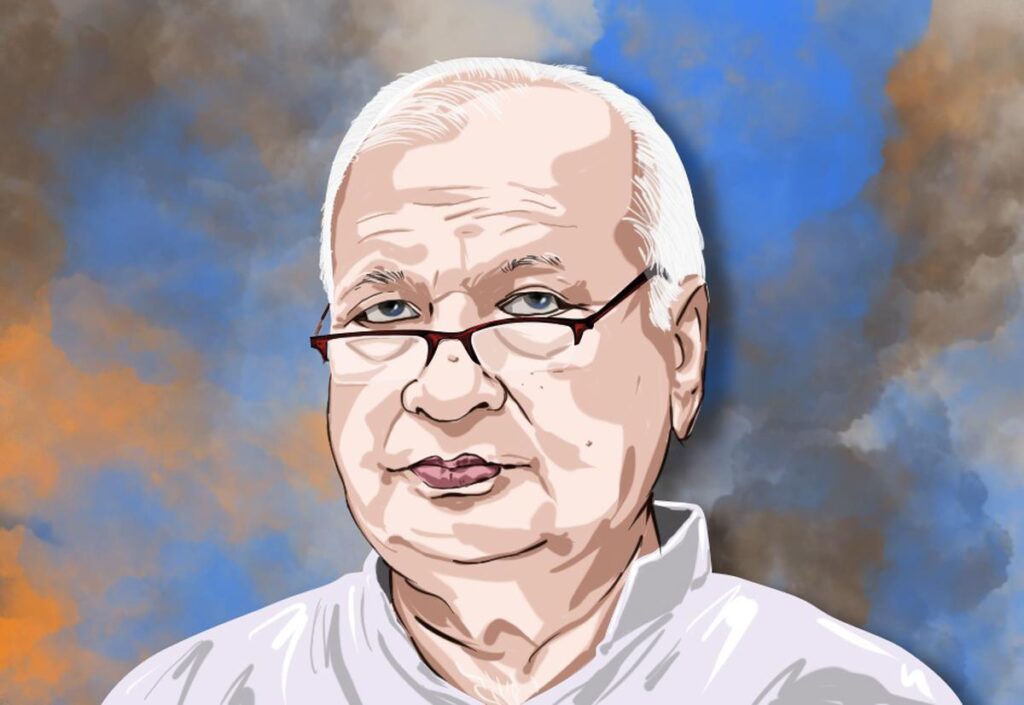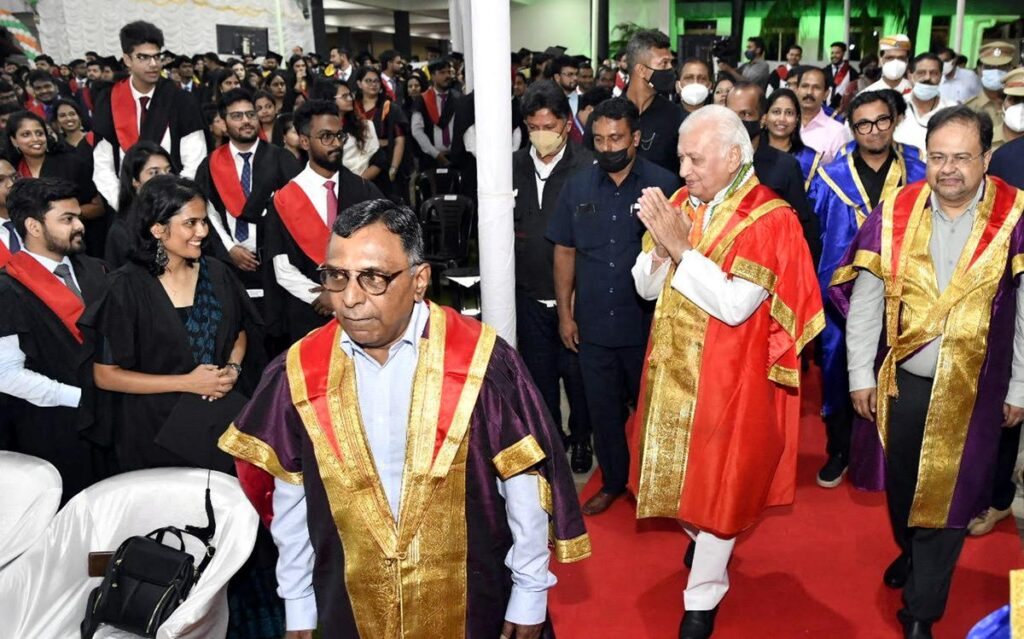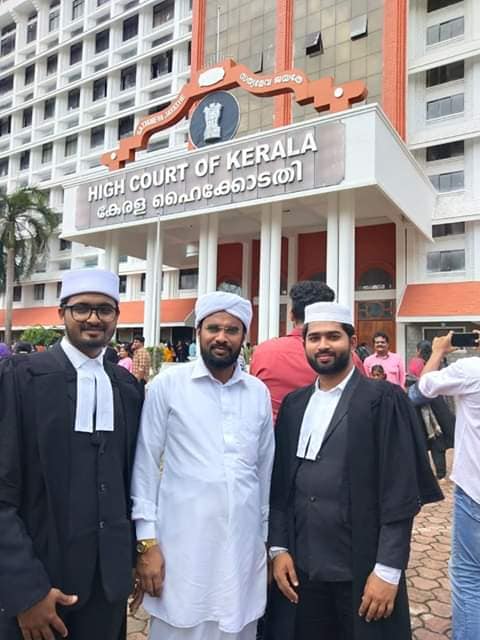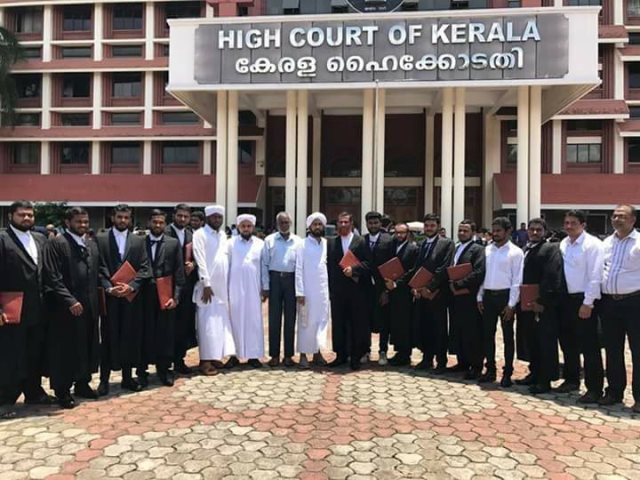Bulandshahr, UTTAR PRADESH:

The Kerala Governor is in the midst of a controversy after he launched an attack on the State government in a press conference
What’s unfolding now in Kerala is merely the latest episode in Arif Mohammed Khan’s lifelong story of being his own man, whatever the stakes, whichever the stage. Often loathed, sometimes loved but hard to ignore, Mr. Khan was that way when he entered student politics in Aligarh Muslim University (AMU) in the early 1970s and rose to be the president of the students union. It wasn’t any different when he became an MLA in 1977, aged 26. Or a Minister of State during the Rajiv Gandhi Government. It is scarcely any different now when he is into his 70s and occupies the august, if increasingly controversial, office of the Governor of Kerala. He is his own man.
Another matter not everyone shares his view of what’s right. Least of all Kerala Chief Minister Pinarayi Vijayan. There is little, if any, love lost between the two. There is a reason: Mr. Khan has been publicly critical of the appointment of Mr. Vijayan’s private secretary’s wife as an Associate professor in Kannur University, where Mr. Khan is the Chancellor. So upset was Mr. Khan that casting custom aside, he called a press conference at Raj Bhawan where he fumed against the elected LDF government.
Unsurprisingly, the LDF government can barely stand him today. It is unlikely to worry Mr. Khan a bit. He is known to express himself even at the risk of social opprobrium. His old friends in AMU and Jamia Millia Islamia, where the Bulandshahr-born young man sought education, remember him as a frank and fearless person who was reasonable and open to debate. He is said to have been a good host who loved his Mughlai food and served it with relish to his guests. Today, they are both surprised and a shade speechless at the ideological and political vicissitudes in Mr. Khan’s life.
Indeed, what is happening today in Kerala is not without precedence in Mr. Khan’s multi-layered career which has seen him making pit stops over the Bharatiya Kranti Dal (the predecessor of Rashtriya Lok Dal), the Congress, the Janata Dal, the Bahujan Samaj Party before finally finding a bit of an echo to his views in the BJP. His stint in Kerala, his vehement opposition to noted Marxist historian Irfan Habib and constant run-ins with the Kerala Chief Minister are all attributed to his saffron leaning. Never mind the fact that he has won elections, notably from Kanpur and Bahraich on the tickets of non-BJP parties and has lost elections, as in Kaiserganj, on the BJP ticket in 2004.
Clash with clerics
Back in the mid-1980s, a section of Muslim clerics had no love lost for him at the height of the Shah Bano controversy when he risked it all in opposing Prime Minister Rajiv Gandhi’s move to virtually overturn the Supreme Court verdict on maintenance to divorced Muslim women.
Faced with calls for social boycott and possibility of political oblivion, Mr. Khan did not equivocate then. He is not likely do that now too.
Mr. Khan is a redoubtable scholar of Islam with a uniquely his own interpretation of religion. One could question his interpretation of scripture, not his facts. Equally, unlike many clerics, he is open to being corrected. Faizur Rehman, an independent Chennai-based Islamic scholar himself, at one time agreed with him on the Shah Bano case, but later made his disapproval known when Mr. Khan supported the criminalisation of triple talaq following the Shayara Bano verdict. “Our friendship was not affected by my criticism of his views on criminalisation of talaq,” Mr. Rehman recalls.
One may disagree with Mr. Khan but there is merit in listening to him, even if he himself could do with being a better listener. In the Shah Bano case, the Muslim clerics had agreed for the husbands to pay a substantial one time alimony to a divorced wife. They later retracted. If the maulanas had listened to him then, India’s political trajectory would have been very different.
As for Mr. Khan, he would do well to remember the letter of the rule book he quotes against the Kerala government expects a certain spirit, a certain decorum from the Governor too. It’s time to listen to Mr. Khan as much as for him to listen to voices of constitutional propriety.
source: http://www.thehindu.com / The Hindu / Home> News> India / by Ziya Us Salam / September 25th, 2022











